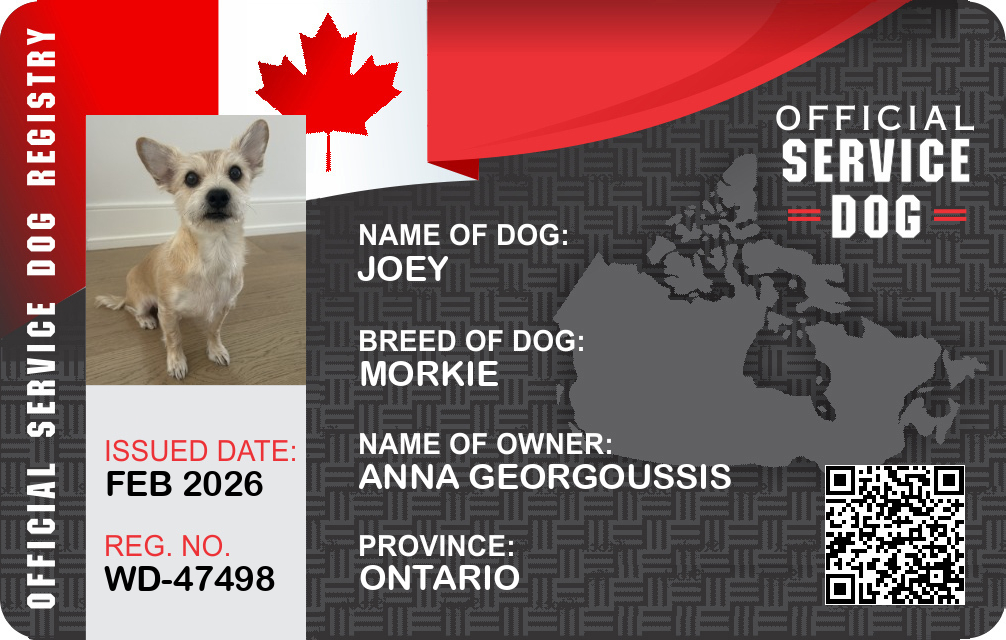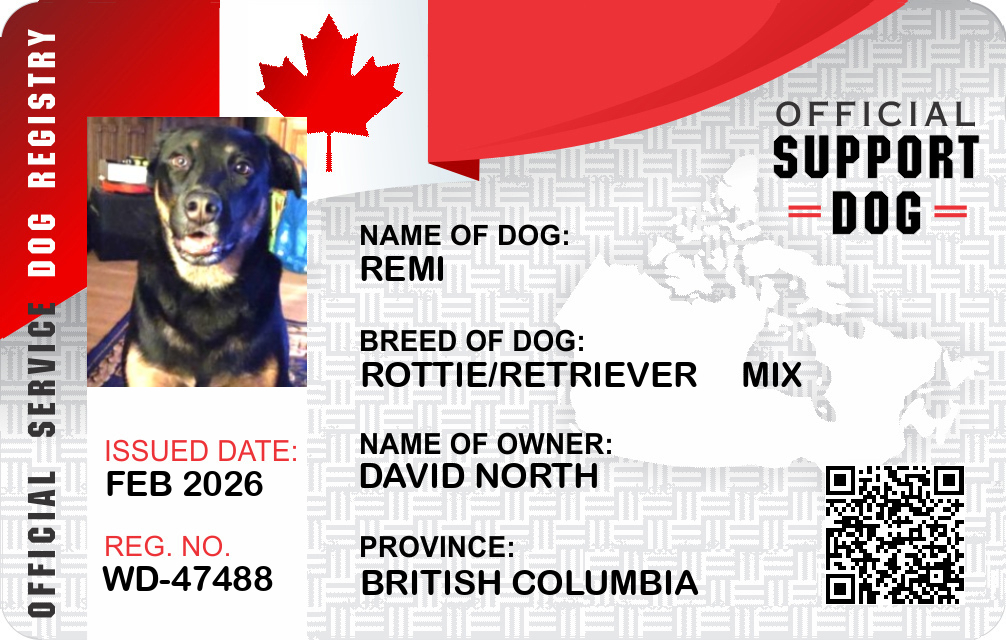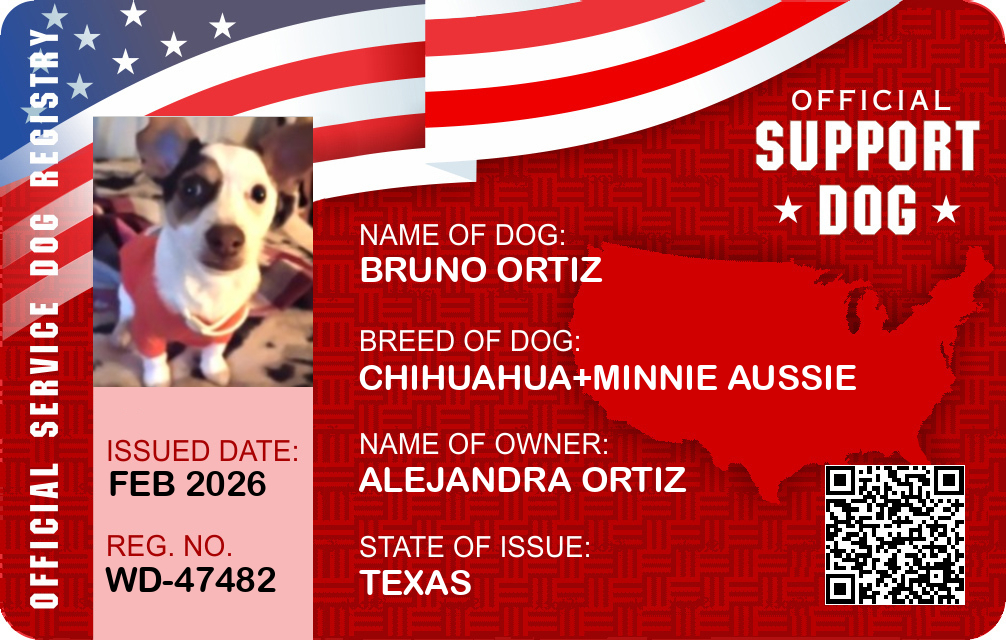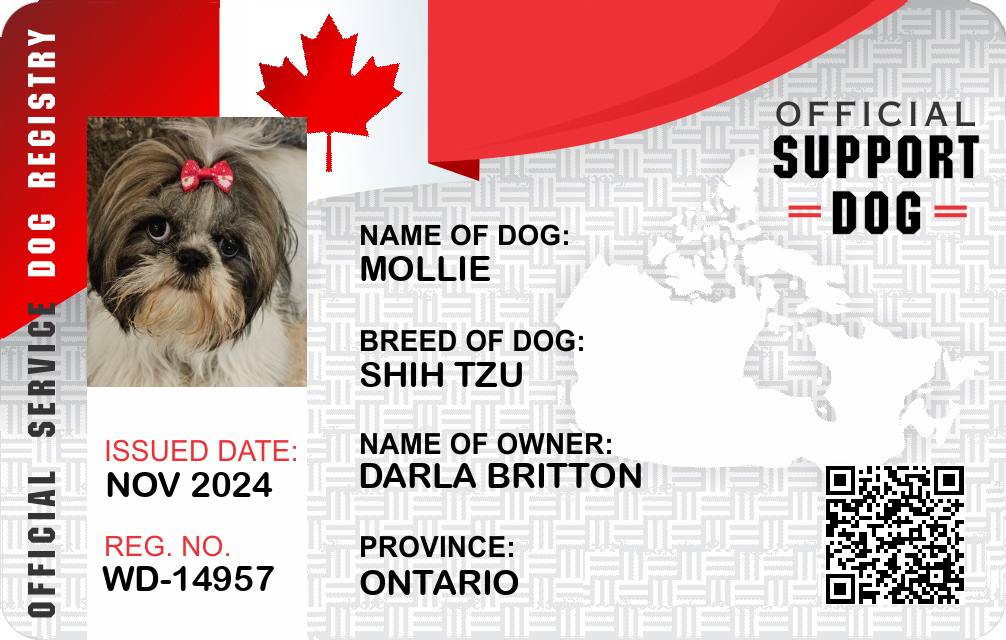Kansas Emotional Support Animal Laws
Get Your Documents
Example State Cards


Overview of ESA and Legal Definitions in Kansas
What is an Emotional Support Animal?
An Emotional Support Animal (ESA) is a companion animal that provides therapeutic benefits to individuals with psychiatric or emotional disabilities. Unlike service animals, which are trained to perform specific tasks for disabled individuals, ESA do not require specialized training. Their primary role is to offer comfort, alleviate symptoms of mental health conditions, and provide emotional support. In Kansas, as in other states, ESA are recognized under federal law, particularly for housing purposes, but they do not enjoy the same level of access to public spaces as service animals.
How ESA Differ from Service Animals
ESA differ significantly from service animals in terms of legal status and the protections they provide. Service animals, typically dogs (and sometimes miniature horses), are trained to perform tasks related to an individual’s disability, such as guiding the visually impaired, alerting deaf individuals, pulling a wheelchair, or retrieving items. Due to this specific training, service animals are protected under the Americans with Disabilities Act (ADA), granting them access to most public spaces.
In contrast, ESA are not trained to perform specific tasks and are not covered under the ADA. Their protections mainly come under housing laws, such as the Fair Housing Act (FHA), which requires housing providers to make reasonable accommodations for individuals with an ESA. In Kansas, ESA may join their owners in housing situations where pets are not typically allowed, but they do not have the same rights to access other public spaces as service animals.
Key Federal Laws Affecting ESA (e.g., FHA, ACAA)
Several federal laws shape the legal landscape for ESA, impacting their treatment in Kansas:
- Fair Housing Act (FHA): This federal law mandates that housing providers make reasonable accommodations for ESA, permitting them in residences that otherwise enforce a no-pet policy. Under the FHA, it’s illegal to discriminate against individuals who require an ESA for their mental health.
- Air Carrier Access Act (ACAA): Historically, the ACAA allowed ESA to accompany their handlers in aircraft cabins. However, as of January 2021, the Department of Transportation revised its regulations, allowing airlines to categorize ESA as pets rather than service animals, thus not requiring airlines to permit them in the cabin.
- Americans with Disabilities Act (ADA): The ADA applies to service animals but does not cover ESA. Consequently, ESA do not have a right of access to public accommodations (e.g., restaurants, stores) under the ADA.
State-Specific ESA Laws in Kansas
Housing Rights and Responsibilities
In Kansas, the primary legal protections for ESA come under the FHA. Landlords must accommodate tenants with an ESA, even in buildings that prohibit pets, without charging a pet fee or deposit. However, tenants can be held accountable for any damages caused by their ESA. Kansas housing providers may request reliable documentation from a qualified healthcare provider confirming the need for an ESA due to a disability. Importantly, the accommodation process requires an interactive dialogue between the tenant and the landlord to find reasonable solutions that consider both parties’ needs.
Public Access and Accommodation
While ESA do not have the same public access rights as service animals, certain entities in Kansas may voluntarily allow ESA in public spaces. However, this is generally at the discretion of the business owner or establishment, and there is no legal obligation for them to do so. Kansas law aligns with federal regulations in this regard, offering no additional public access rights for ESA beyond those established at the national level.
Transportation and Travel Rules
For transportation purposes, ESA in Kansas do not have guaranteed access rights under the revised ACAA. While airlines previously considered ESA akin to service animals, changes to federal regulations mean that they may now treat ESA as regular pets, with associated fees and restrictions. ESA owners in Kansas should check specific airline policies prior to travel to understand the requirements and fees involved. Public transit systems within Kansas are also not required to accommodate ESA, though service animals are allowed.
Employment and Workplace Considerations
Under the ADA, ESA are not recognized as reasonable accommodations in the workplace in Kansas. However, some employers may voluntarily allow them, considering the mental health benefits they provide. Employees seeking to bring an ESA to work should engage in an open dialogue with their employer, providing necessary documentation when requested. Employers in Kansas are encouraged to assess requests on a case-by-case basis, considering reasonable accommodations that do not impose an undue burden on the business.
Documentation, Requirements, and Processes in Kansas
ESA Letters and Who Can Issue Them
In Kansas, an ESA letter is a critical document that legitimizes the need for an emotional support animal. This letter must be issued by a licensed mental health professional (LMHP) or medical provider who is familiar with the individual’s mental health condition. The letter should confirm that the individual has a mental or emotional disability recognized under the Diagnostic and Statistical Manual of Mental Disorders (DSM) and that the ESA provides support that alleviates one or more identified symptoms of the disability.
Registration, Certifications, and Common Misconceptions
Unlike service animals, ESA do not require registration or certifications from any government or regulatory body in Kansas. Websites promising ESA registrations and certifications are often misleading and unnecessary. The only legitimate requirement for establishing an ESA is the proper documentation from a licensed healthcare provider. Owners should be aware that while registration might offer a certificate or ID card for convenience, it does not confer any additional legal rights or standings for the animal.
Landlord, Business, and Provider Verification Rules
In Kansas, landlords and housing providers are entitled to request documentation concerning the need for an ESA but cannot demand detailed medical records or a diagnosis. Businesses are not required to admit ESA, and verification typically centers around housing-related inquiries. Providers must ensure the integrity of the verification process by only providing ESA recommendations to patients with whom they have an established therapeutic relationship.
Rights, Limitations, and Legal Risks
Rights ESA Owners Have in Kansas
Owners in Kansas have the right to live with their ESA in housing situations that normally restrict pets, without paying additional pet fees, provided they can offer legitimate documentation of the need for an ESA. This aligns them with FHA protections, ensuring nondiscriminatory access to housing. Should a landlord refuse reasonable accommodation, ESA owners can file a complaint with the U.S. Department of Housing and Urban Development (HUD) or seek redress through state human rights agencies.
Limits on ESA Protections and Common Restrictions
Despite housing rights, ESA do not share the extensive protections given to service animals regarding access to public places, transportation, and workplaces. Business owners and service providers are not legally obligated to accommodate these animals, and transportation rules follow federal guidelines that position ESA generally as standard pets. Owners should respect private property rights and not insist upon unauthorized access for their ESA.
Penalties for Fraud or Misrepresentation
Those who falsely represent their pet as an ESA might face legal repercussions under Kansas law. Misrepresentation can include providing falsified documentation or making fraudulent statements about the animal’s ESA status. Such actions undermine trust in service animal protocols and could result in fines or other penalties. Ethical adherence to the legal frameworks governing ESA designations is crucial for maintaining system integrity.
Practical Guidance for ESA Owners in Kansas
How to Qualify for an ESA Legitimately
To legitimately qualify for an ESA in Kansas, an individual should consult with a licensed mental health professional who can evaluate the need for an emotional support animal based on the individual’s mental health condition. Obtaining an ESA letter that meets state and federal guidelines is critical. Owners are advised to maintain this documentation readily accessible for housing situations and to update it periodically as needed.
How to Talk to Landlords, Airlines, and Employers
When approaching landlords, airlines, or potential employers about ESA, open communication is essential. ESA owners should be prepared to present their valid ESA letter and engage in a constructive dialogue about their needs and the benefits of the ESA. Respectful, clear communication can often resolve potential conflicts and facilitate understanding.
Summary of ESA Laws in Kansas
- ESA Definition and Legal Scope: ESA provide therapeutic support but lack the public access rights of service animals.
- Federal and State Interaction: The FHA ensures housing access, but public and air travel access aligns with federal limitations.
- Housing Rights: ESA can reside with their owners in pet-restricted housing with valid documentation.
- Public and Workplace Limitations: No legal mandate for public accommodation or workplace inclusion for ESA.
- Documentation and Misrepresentation: Legitimate ESA letters are essential; misrepresentation carries legal risks.
By adhering to these guidelines and remaining informed about both federal and Kansas-specific laws, ESA owners can navigate their rights and responsibilities effectively.
Get Your Documents
Example State Cards













